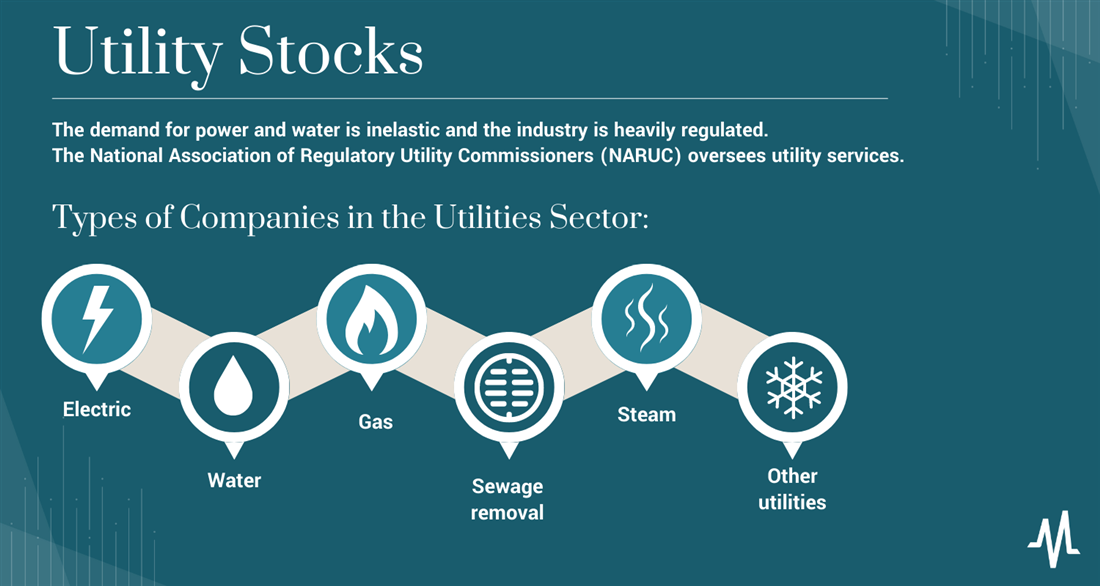Utility companies perform essential services -- from powering homes to providing clean water -- that rarely garner investor attention unless something goes wrong. Although these stocks might seem unexciting due to their modest growth prospects, they offer notable benefits for risk-averse investors seeking stable returns.
Understanding the Utilities Sector
Utility companies typically operate under the radar, mainly noticed when services falter. Heavily regulated by entities like the National Association of Regulatory Utility Commissioners (NARUC), these companies ensure essential services are fairly and reasonably priced. Considered defensive due to inelastic demand and stringent oversight, this sector plays a vital role in everyday life.
Why Consider Utility Stocks?
Due to the sector's regulated nature and stable demand, investing in even the best utility stocks isn't a shortcut to wealth. Their appeal lies in security and consistency. Utilities often provide lower volatility than the broader market and offer higher dividend yields -- two attributes cherished by investors who prioritize safety over high risk.

Utility Sector Breakdown
The Bureau of Labor Statistics Utility categorizes utility providers into five main types, each overseen to ensure reliable and affordable service.
Pros and Cons of Utility Stocks
Before diving into utility stocks, it's important to weigh their advantages against potential downsides. Utility stocks typically offer safety and steady dividends but may lag during bull markets and can be affected by regulatory changes and interest rate fluctuations.
- Advantages: Stability, higher dividends (e.g., XLU ETF with a yield of 3.07% versus the S&P 500's average).
- Disadvantages: Limited growth potential, highly sensitive to interest rate changes.
Investment Strategy for Utility Stocks
When building a utility-focused portfolio, consider factors such as dividend performance and sector stability. ETFs like the Utilities Select Sector SPDR Fund NYSE: XLU can simplify exposure to this sector. Monitoring your investments for performance and regulatory changes is also crucial.
How to Invest in Utilities
Which utilities to invest in depends on your goals and time frame as an investor. Utilities have minimal volatility, which doesn't make them ideal for short-term trading. If you want to make quick profits, you'll likely find better options in other sectors, like tech, consumer discretionary or even energy stocks. An investment in utility stocks could be worthwhile if you have a long-term mindset, like a retirement saver looking to earn a steady dividend income.
Step 1:Research Utility Companies
While all utilities are heavily regulated, not all companies have the same balance sheets, debt levels or long-term prospects. Look for companies that pay good dividends, either in the diversified utility sector or narrow your search to companies strictly dealing with electricity, water supply or even renewable energy providers.
Step 2: Determine Your Allocation
Remember these stocks will likely be the most conservative equities you purchase, so consider the level of risk you want in your equity investments and use the capital for utility stocks based on those guidelines.
Step 3: Purchase Shares
Open a brokerage account and directly buy shares of your preferred utility company, or invest in a low-cost ETF like the Utilities Select Sector SPDR Fund NYSE: XLU.
Step 4: Monitor Your Investment
Stay on top of current events and regulatory actions, especially with the push for renewables underway, and rebalance your portfolio when appropriate.
The Future of Utility Stocks
As renewable energy initiatives gain momentum, the utility sector might see significant transformations. However, factors like high inflation and rising interest rates could impact investment decisions in this traditionally conservative sector.
Utility Stocks: Low Risk, Consistent Reward
Utilities are indispensable, providing critical services that ensure the functionality of daily life. While they may not attract as much attention as high-growth sectors, their role in a well-rounded investment strategy should not be underestimated, especially for those seeking reliable dividends and minimal volatility.
FAQs
Let's take a look at some frequently asked questions about utility stocks.
What qualifies as a utility stock?
Utility stocks provide essential services like electricity and water, which are heavily regulated to ensure widespread access and fairness.
Are utilities sound investments?
For those seeking stability and dividend income, utilities are a prudent choice, although they offer limited growth potential.
How risky are utility stocks?
Utility stocks are among the least volatile investments available, often seen as a safe haven in turbulent markets.
Before you consider Exelon, you'll want to hear this.
MarketBeat keeps track of Wall Street's top-rated and best performing research analysts and the stocks they recommend to their clients on a daily basis. MarketBeat has identified the five stocks that top analysts are quietly whispering to their clients to buy now before the broader market catches on... and Exelon wasn't on the list.
While Exelon currently has a "Hold" rating among analysts, top-rated analysts believe these five stocks are better buys.
View The Five Stocks Here
Almost everyone loves strong dividend-paying stocks, but high yields can signal danger. Discover 20 high-yield dividend stocks paying an unsustainably large percentage of their earnings. Enter your email to get this report and avoid a high-yield dividend trap.
Get This Free Report
Like this article? Share it with a colleague.
Link copied to clipboard.